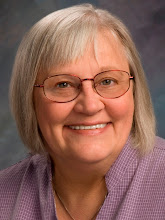
I read a
lot of books. I don't mean a skimpy one per week or anything like that; double or triple that, and you're in my ballpark. I read both multi-genre fiction and multi-category nonfiction. I'm not only an avid book reader; I'm also a highly critical book editor and writing instructor. And I will say this without apology or qualification: The very last thing CBA (shorthand for the Christian book publishing industry) needs is another crummy or mediocre or wannabe writer. You have to kiss a lot of toads to find a prince, or princess, among the mass of Christian writers.
One such evidence of CBA royalty is Angie Kiesling, who writes under the name A.J. Kiesling and is one of the best writers I've ever edited. She is also a friend, which makes me appear less than objective in my assessment of her writing skills. But before I launch into a glowing review of her first novel,
Skizzer, let me assure you that our friendship grew in part out of a mutual respect for each other's writing skills. I wouldn't praise her book just because she's my friend; I wouldn't subject her or you or the publishing industry to that kind of deception.

Here's what I love about Angie's writing: She's a wordsmith through and through. After reading dozens and dozens of Christian novels so far this year, I am so utterly tired of lazy writing, which made
Skizzer such a refreshing and
even recuperative read; I found myself breathing more deeply as I settled into a book that reminded me why I love the English language so much. Angie's word choice is always precise; her metaphors are always fresh; her descriptions are always visual. If you can't "see" the scenes in
Skizzer, the problem is not with her writing.
Okay, enough about Angie. I'm guessing it would help if I told you a bit about the book. In
Skizzer (the way one character pronounced "sister" as a toddler), protagonist Claire Trowling's sister, Becca, has disappeared, leaving only a few cryptic clues behind. Claire's quest to find her sister uncovers a long-held family secret and takes her from North Carolina to England, where the mystery behind an unusual pendant, the celebration of a sacred ritual and the reason for Becca's disappearance all come together. It's a compelling, suspenseful and ultimately satisfying read.
Reading
Skizzer made me wonder why CBA editors don't demand this level of writing from more of their authors. Maybe the problem is that there are plenty of writers in love with stories but not enough in love with language
and stories. Readers should be given both — a page-turner of a story and just the right words to tell it. Budding writers and veteran authors alike would do well to read
Skizzer and learn from it.
You can buy the book
here as well as in brick-and-mortar stores, and you can read a great interview with Angie
here. I heartily recommend both.



